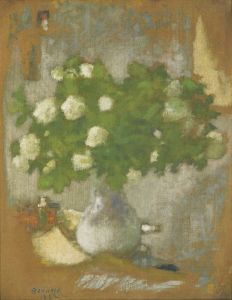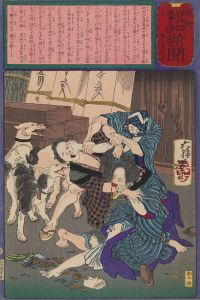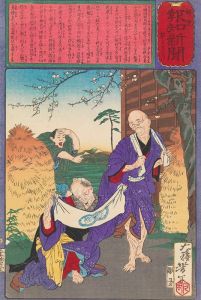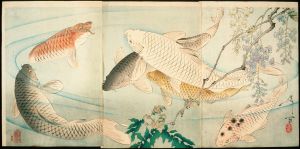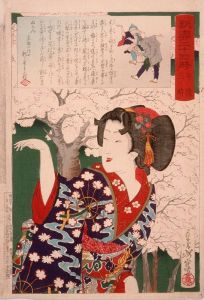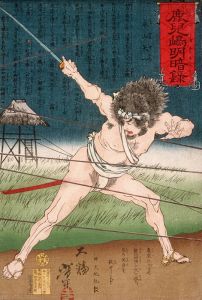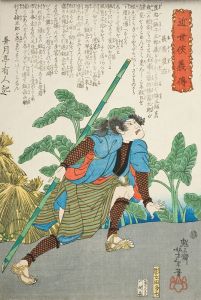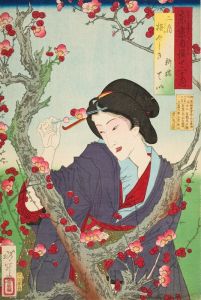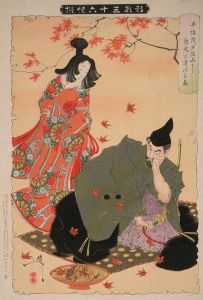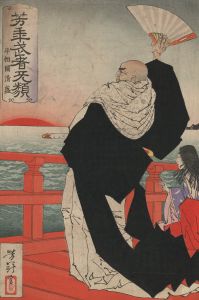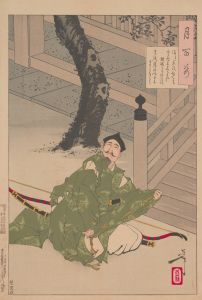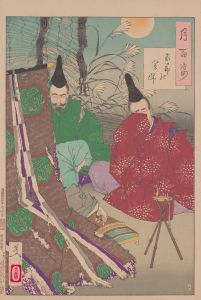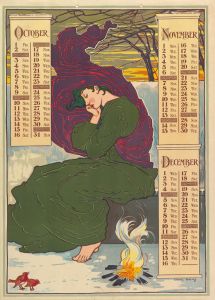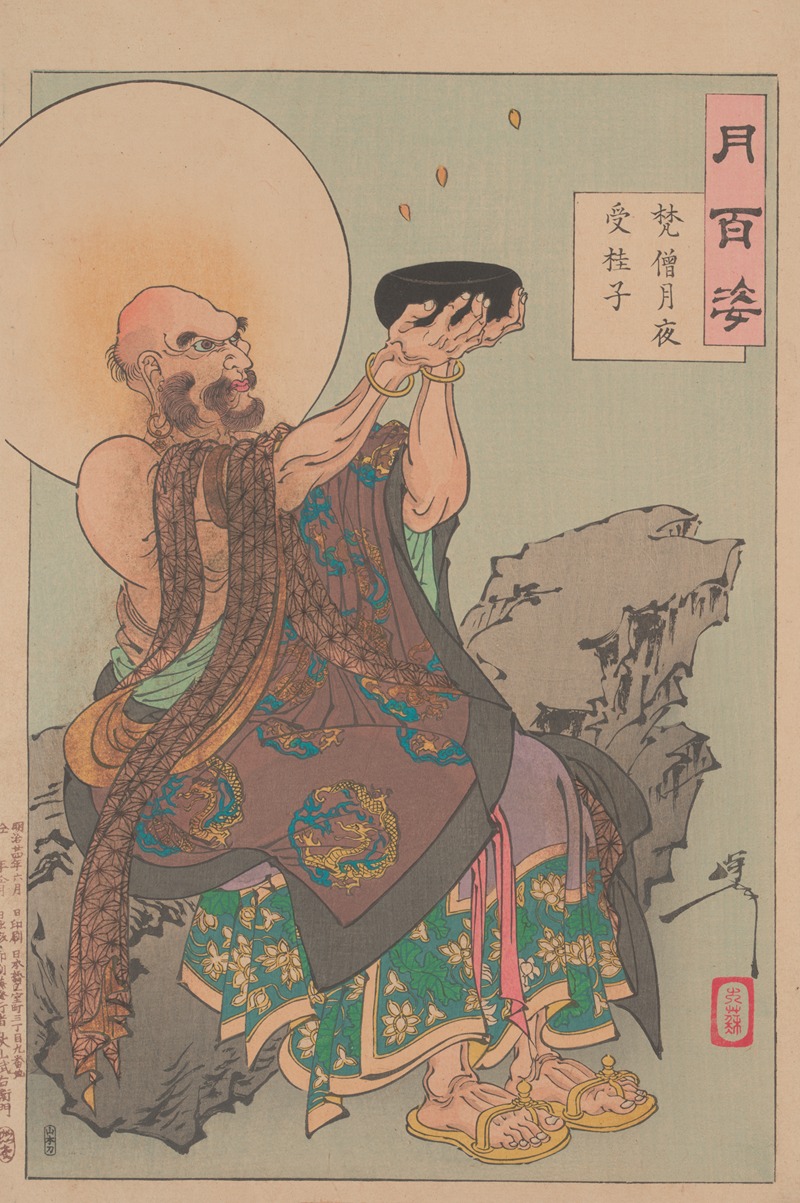
A Buddhist monk receives cassia seeds on a moonlit night
A hand-painted replica of Tsukioka Yoshitoshi’s masterpiece A Buddhist monk receives cassia seeds on a moonlit night, meticulously crafted by professional artists to capture the true essence of the original. Each piece is created with museum-quality canvas and rare mineral pigments, carefully painted by experienced artists with delicate brushstrokes and rich, layered colors to perfectly recreate the texture of the original artwork. Unlike machine-printed reproductions, this hand-painted version brings the painting to life, infused with the artist’s emotions and skill in every stroke. Whether for personal collection or home decoration, it instantly elevates the artistic atmosphere of any space.
Tsukioka Yoshitoshi (1839–1892) was a prominent Japanese ukiyo-e artist, known for his innovative and dramatic woodblock prints. He is often regarded as the last great master of the ukiyo-e tradition, which flourished during the Edo and early Meiji periods. One of his notable works is A Buddhist Monk Receives Cassia Seeds on a Moonlit Night, part of his celebrated series One Hundred Aspects of the Moon (Tsuki hyakushi), created between 1885 and 1892.
This series, consisting of 100 woodblock prints, explores themes related to the moon, drawing inspiration from Japanese history, folklore, literature, and legends. Each print in the series features a unique depiction of the moon, often accompanied by a poetic or narrative element. Yoshitoshi's work in this series is widely praised for its technical mastery, emotional depth, and ability to blend traditional Japanese aesthetics with modern influences.
The print A Buddhist Monk Receives Cassia Seeds on a Moonlit Night portrays a serene and contemplative scene. It depicts a Buddhist monk receiving cassia seeds under the light of the moon. The cassia tree, often associated with the moon in East Asian culture, symbolizes enlightenment and immortality in Buddhist and Daoist traditions. The moonlight in the composition enhances the spiritual and tranquil atmosphere, reflecting Yoshitoshi's skill in capturing mood and emotion.
Yoshitoshi's One Hundred Aspects of the Moon series was produced during the Meiji era, a time of significant social and cultural transformation in Japan. The series reflects Yoshitoshi's effort to preserve traditional Japanese art and storytelling amidst the rapid modernization and Westernization of the period. His work often combines historical and mythical subjects with a deep sensitivity to human emotion, making his prints resonate with viewers both in his time and today.
This particular print, like others in the series, showcases Yoshitoshi's mastery of composition, line work, and use of color. The delicate interplay of light and shadow, along with the intricate details of the monk's robes and the surrounding environment, exemplifies the artist's technical skill and artistic vision.
Yoshitoshi's One Hundred Aspects of the Moon remains one of his most celebrated achievements, and individual prints from the series, including A Buddhist Monk Receives Cassia Seeds on a Moonlit Night, are highly regarded by collectors and scholars of Japanese art. The series is considered a culmination of Yoshitoshi's career and a testament to the enduring beauty and cultural significance of ukiyo-e.





